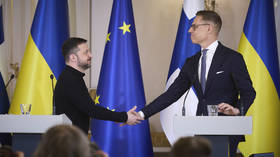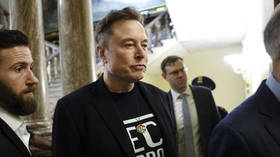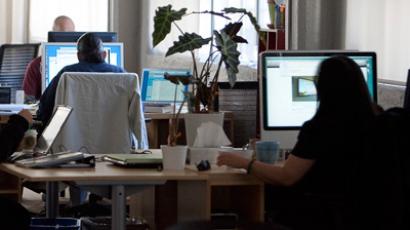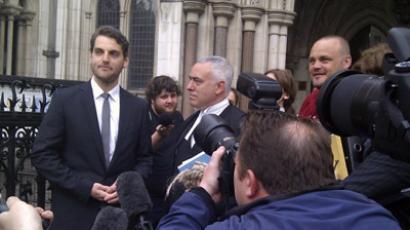One country, a million societies: Facebook, broadband create social upheaval in UK
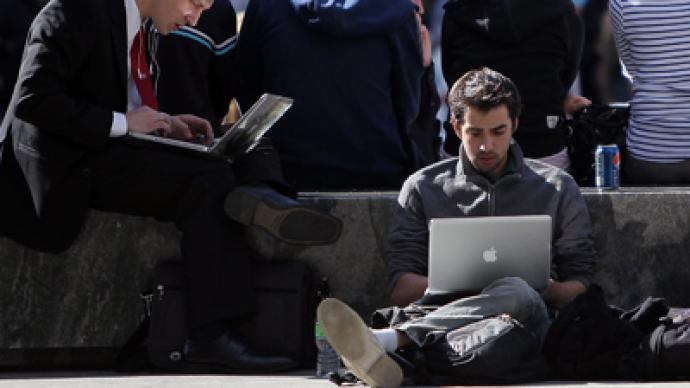
Communication technology is leading to a radical reorganization of UK society, says a major study. Traditional communities will become “less cohesive”, as virtual ones form in their place, and the very definition of what it is to be a person changes.
Extensive social predictions off the back of latest Instagram usage statistics are not rare, but the report, funded by the Treasury and led by Chief Government Science Advisor Sir John Beddington, is the most comprehensive attempt yet to understand the implications of technological change on our identities.“Increasingly, UK citizens will be globally networked, hyper-connected individuals, and this has substantial implications for what is meant by communities and by social integration. This means that some people also become part of ‘virtual’ communities, or communities of interest, rather than their neighbourhoods, and so feel less attachment to their physical locality,” write the authors, who commissioned 20 separate studies for the Future Identities report.“Communities in the UK are likely to become less cohesive over the next 10 years.”Muslim/Kidult/Football fanSeventeen out of twenty Britons of all ages regularly go online, and over two thirds are members of social networks, up from just 17 percent in 2007. Both Facebook and Twitter are used by just over half of the population.Aided by “hyper-connectivity” – the ability to always be online and to instantaneously document anything that is happening to them – the report claims Britons are no longer bound by traditional social roles.Be it through a Facebook profile that shows one’s life as a never-ending carnival, a post on a football forum in the guise of a rabid fan, or a sober CV on LinkedIn, people now project what the study calls ”social plurality”, a variety of overlapping parts of personality they choose to amplify and show other people.These new identities are replacing the older social personas of working professional, housewife, or pensioner, as people present themselves as they wish, and socialize on the basis of their interests, beliefs or fantasies.Even age roles – which have in the recent past been defined by concrete things such as children, home ownership or retirement – are breaking down.“An important trend for people’s identities is the emergence of new life stages, such as the more prolonged transitions between adolescence and adulthood (‘emerging adulthood’, referring to people in their 20s and early 30s) and between middle-age and old-age (‘older adulthood’: roughly between the ages 60 and 75), with a fluid period of reaching ‘full adulthood’ and then ‘middle adulthood’ sandwiched in between,” says the study.“Increasingly these life stages are being either delayed, extended, or blurred together, and are likely to become even more fluid in future.”Some of these changes maybe sparked by demographics (an older population) or the economy (more expensive housing) but they are exponentially accelerated by the freedom and connectivity offered by the internet.Bedroom terrorists, London rioters and Facebook donorsThe impact is mixed.“The internet can allow many types of people to realise their identities more fully; for example, some people who have been shy or lonely or feel less attractive discover they can socialise more successfully and express themselves more freely online,” says the report.“For many with disabilities being online or having an avatar can be the first time the person feels they are seen by others as a ‘normal’ human being.”But as individuals burrow into their private cubby holes with the like-minded, they may lose touch with the rest of society.“The role of online channels is often seen as crucial in providing support and information to facilitate Islamic radicalisation. It is true that the internet may provide a medium in which extreme views can become accentuated and normalized.”But it is not just trainee terrorists who are feeling alienation, but also the young. In their minds, many have higher expectations than previous generations, fueled largely by the “everyone-is-a-star” mentality of social networks, but in reality they face “uncertainty” in a globalized economy that can no longer guarantee them a lifetime of financial security, even if they complete university. Instead, they face a prospect of caring for an ever-growing army of elderly relatives.The authors say this may lead to a “lack of feeling of belonging, and less social investment for the future”.When such disenfranchised groups do find a shared purpose, it can be through destructive behavior such as the London riots of 2011, organized primarily through mobile phones and social media.The report claims that hyper-connectivity can compensate for the lack of cohesion, and often produce positive displays of social unity. Current technology means that when the Olympics take place or a natural disaster occurs, “disparate groups can be more easily mobilised where their interests temporarily coincide”, whether those lie in joining in national celebrations of sporting excellence or donating money for a relief effort.One-way information superhighwayRegardless of how one sees these changes, they cannot be reversed. The study points out that by the time the current generation of under-18s become adults, they will not remember Britain without social networks and instant internet access.In their world “maintaining an online presence could become normalised to the point where refusing to participate in online media could appear unusual or even suspicious”.As for those for those who still say no to logging on (or are unable to, due to age or poverty) simply leaving is not an option.The report says those “people may also find increasingly that their online identities are created or mediated by others.” As in, just because you are not on Facebook, it does not mean that other people haven’t uploaded your photos there and commented on them.So, while the pace of social change will be “increasingly dynamic or volatile”, in the past decade Britain has already changed in ways that are invisible to the naked eye, but as fundamental as any physical construction or new law. As the authors sum up in their final recommendation to the politicians in charge, “In future, the UK needs to be considered as much a part of the virtual world as a real place.”
Igor Ogorodnev, RT









